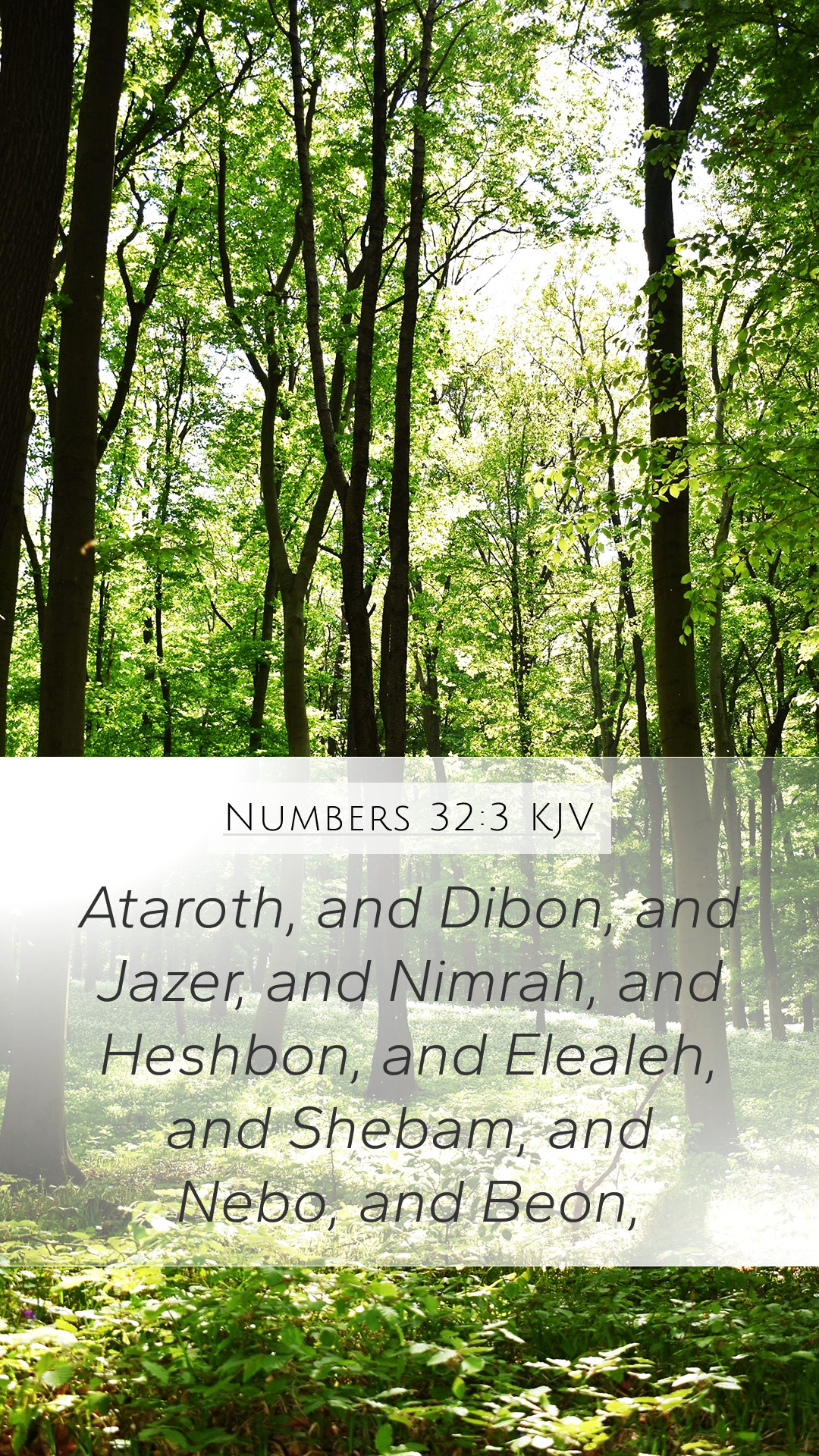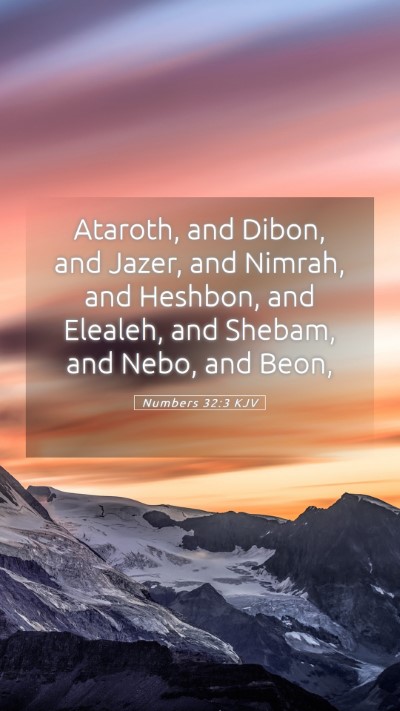Understanding Numbers 32:3 - A Comprehensive Analysis
In Numbers 32:3, the focus is on the tribes of Reuben and Gad as they express their desire to settle east of the Jordan River, an area abundant in pasture land. This verse reads:
“Ataroth, Dibon, Jazer, Nimrah, Heshbon, Elealeh, Shebam, Nebo, and Baal-Meon, all of which are in the land of the Ammonites.” (Numbers 32:3, ESV)
Key Themes from Commentary Insights
This verse has garnered diverse interpretations and analyses from various biblical commentators, shedding light on its meaning and significance. Below is a synthesis of insights from Matthew Henry, Albert Barnes, and Adam Clarke:
1. The Context of Desire for Land
Matthew Henry points out that the request of Reuben and Gad illustrates a common human inclination: the desire for comfort and security. He notes that the tribes prioritized their own needs over the collective journey to Canaan, demonstrating a potential weakness in faith and communal responsibility.
2. Strategic and Practical Considerations
Albert Barnes emphasizes the practical nature of their request. The land east of Jordan was fertile and well-suited for livestock, which was critical to their livelihood. The tribes sought a balance between spiritual duty and practical needs, highlighting the importance of discernment in matters of faith and provision.
3. Theological Implications of Settlement
Adam Clarke notes the theological ramifications of this decision. He reflects on the implications of choosing to settle outside the Promised Land, prompting a discussion about commitment to God’s promises. The decision indicates a partial acceptance of God’s plan, prompting readers to consider their own commitments to divine guidance.
Meaning of Bible Verses
The verse's meaning can be further understood through an analysis of its components:
- Desire for Stability: Reflects human needs for security and agricultural viability.
- Communal Responsibility: Calls into question the balance between individual desires and collective responsibilities in faith.
- Faith in God’s Promises: Serves as a reminder of the importance of remaining focused on spiritual inheritance versus temporary comfort.
Moral and Ethical Considerations
This passage raises moral questions regarding the balance of practical decisions in faith. Each commentator offers a unique perspective:
- How do personal desires align with God’s greater plan?
- What does the request of Reuben and Gad reveal about prioritizing personal needs in the life of faith?
- Is it acceptable to seek comfort in other options, or does it reflect a lack of faith?
Applications to Daily Life
For contemporary readers, Numbers 32:3 serves as a thought-provoking text encouraging reflection on:
- Commitment to God’s calling even when facing attractive alternatives.
- The importance of community in the journey of faith.
- Evaluating the conflict between secular desires and spiritual commitments.
Cross References
This verse connects with other biblical texts that discuss similar themes of desire, settlement, and commitment to God. Notable references include:
- Deuteronomy 3:12-13 - The discussion of land inheritance among the tribes.
- Joshua 1:12-15 - The reminder of responsibilities regarding land and battle.
- Hebrews 11:8-10 - Discusses the faith of Abraham who looked forward to a promised land.
Conclusion
In conclusion, Numbers 32:3 serves as a profound commentary on the nature of faith, community, and the intersection of personal desires with divine purposes. By drawing from the insights of biblical scholars and cross-referencing with other scriptural passages, readers gain a rich understanding of this verse's significance in their spiritual journey.


